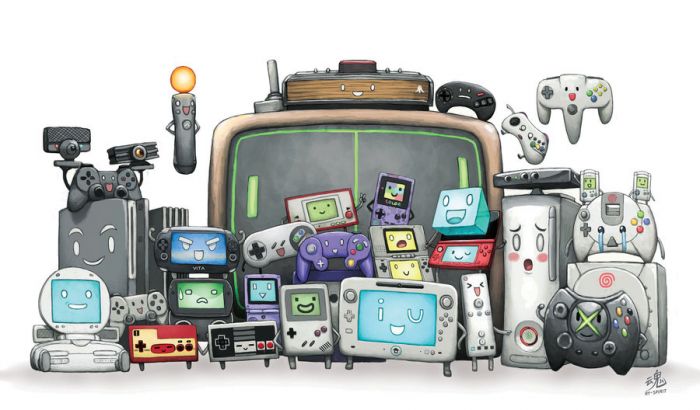For the love of games.
It’s not often I feel the need to defend games, whether it be individual titles or the medium as a whole. However, after a week that saw Eurogamer lose Robert Florence and face the threat of libel charges after voicing some pretty blatant truths about the games industry, it seems only fitting that games, and the culture surrounding them, should be studied and scrutinized more often.
With that in mind, perhaps we should consider what makes the medium so great, so worthy of our passion and just what it is that we should strive to preserve. In this case, I want to talk about who makes it so great.
The Guardian, for those who aren’t acquainted, is a fairly left-wing newspaper that frequently seems to annoy people here in the UK. I’m not quite sure why, but then I’m oblivious to any of their wrong doings so long as Charlie Brooker keeps writing for them. Every year, they publish the MediaGuardian 100: a list of the most prominent media figures alive today, ranging from the likes of Larry Page, to Simon Cowell and lots of increasingly irrelevant people who work at the BBC.
Despite the whole thing basically being a giant love-in; a gushing love letter to the BBC; a desperate self-validation for print media and a subordinate acceptance of digital media’s dominance; there are barely any representatives from the video games industry. In fact, there’s just one: Michael Acton Smith – the man behind cross-media kid’s sensation Moshi Monsters.
Now, I’m not for one minute trying to discredit Smith’s achievements, in fact, I’m glad that at least someone representing my beloved medium made the cut. I just can’t help thinking if there isn’t someone else more deserving. Or that one gaming luminary surrounded by several relics of British TV’s heyday just doesn’t seem fair. Satoru Iwata, Reggie Fils-Aime, Kaz Hirai and Hideo Kojima all spring to mind, even then I realize how ignorant I’m being for the names I’ve probably neglected to mention. But then, self-doubt kicks in and I start to ask myself, for all their talent and achievement, are these people actually powerful: relevant even? Then, of course, I also ask myself why do I care what a decaying artifact like The Guardian has to say?
And so, I come to my point. After reading Tadgh Kelly’s inspiring critique of the whole affair, I found myself wanting to defend my medium and fight its corner, yet I’m struggling to really put forward a name that genuinely qualifies as a heavy hitter in terms of broad media influence. This is where I’m hoping you’ll come in.
At this stage in gaming’s development, perhaps it is too soon to have genuinely important figureheads. In the coming eras, we’ll no doubt champion the likes of Miyamoto as forefathers and as those who built the foundations necessary to achieve true greatness. Or perhaps we’re already there, and it’s time the rest of the world started taking us seriously.




